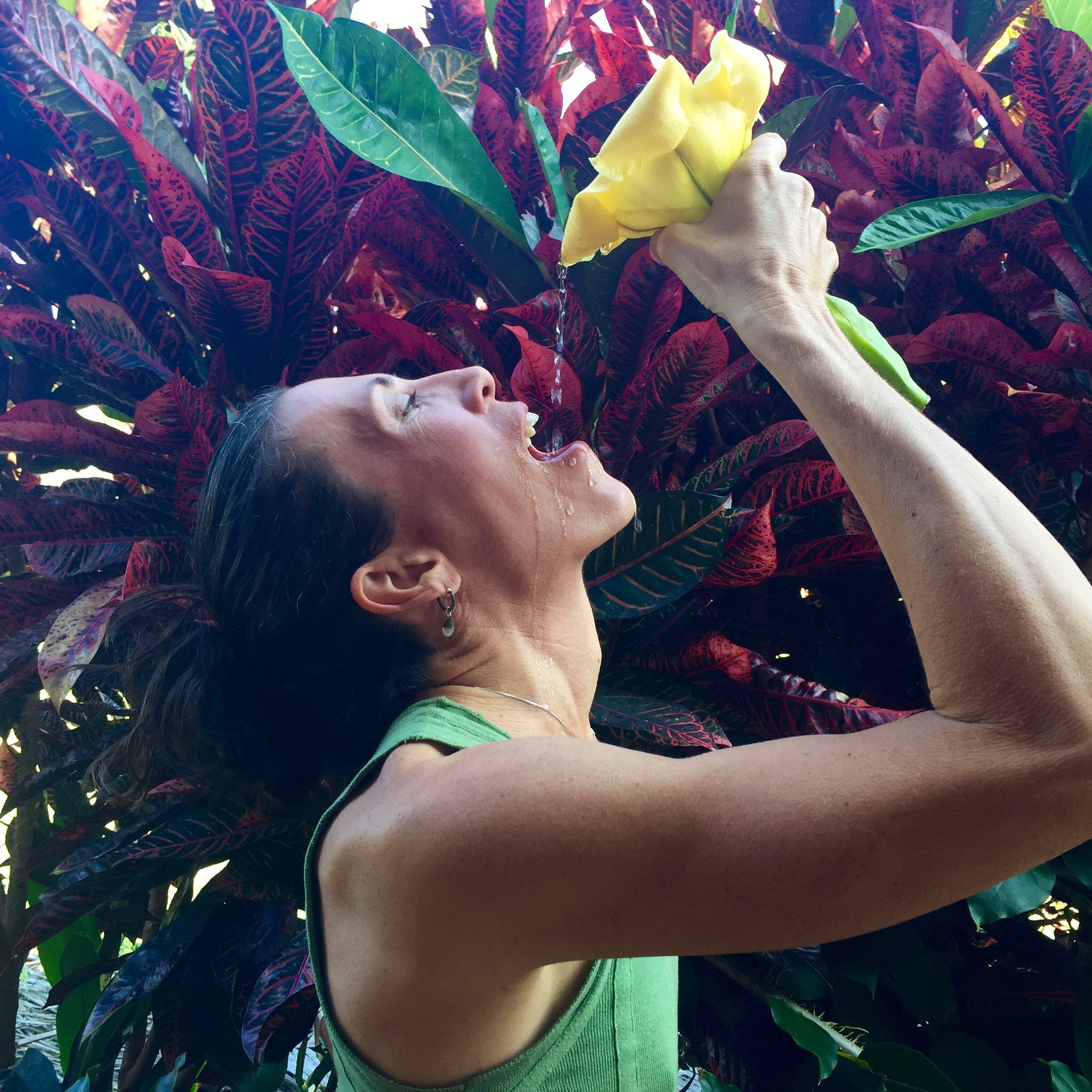
How many times have you held back a yawn, a sneeze or tears? Did you ever imagine that such a seemingly harmless action could contribute to illness and imbalance? That was the case for one student who came through a Hale Pule Yoga teacher training.
This student arrived with nervous energy, a sign of high vata dosha, physical weakness and complaints of chronic headaches. Through the first week of the training, whenever she felt the urge to sneeze, she stifled it, letting out only a tiny squeak. We encouraged her to let the sneeze out, but she had great resistance to doing this as she had followed this pattern all of her life, believing she should not disrupt the people around her. In fact, she was disrupting her own body.
Ayurveda recognizes 14 natural urges of the body that should always be respected: flatulence, defecation, urination, belching, sneezing, thirst, hunger, sleep, cough, breathing rapidly with exertion, yawning, tears, vomiting and ejaculation. Laughter and hiccups are secondary urges that should also be respected. To suppress these is called prajnyaparadha, or crimes against wisdom. This “crime” is a suppression of your body’s innate wisdom about what it needs to do to function well. To deny that wisdom is a direct offense to your physical, mental, energetic and spiritual body.
The natural flow of prana
Prana exists in your body and naturally flows in and out. Some of the 14 urges direct prana in (hunger, thirst and breath), while others direct the flow of prana – along with what your body is ready to expel – out (vomiting, urination and sneezing). Disrupting this natural flow incorrectly redirects prana. Just like a car driving on the wrong side of the road, suppressed urges will cause blockages in the traffic of your body, which become the breeding ground for disease.
Healing from crimes against wisdom
Your natural urges are gifts that allow you to be more connected to your body. For instance, the urge to burp at the end of a meal is a sign that your stomach is full, and paying attention is a way to avoid overeating. Other urges, such as flatulence, signal excess vata and offer an opportunity to address the cause.
The Ayurvedic texts outline specific diseases that can result from suppressing natural urges. But even if you have been suppressing urges for some time, once you begin to respect them, there are many ways to restore balance. For example, if you have been suppressing tears, you may notice mental imbalance and spiritual disconnection – it can even lead to heart disease. To find balance, release pent up emotions by talking to a trusted friend or journaling. If you don’t regularly urinate when you have the urge, then menstrual problems, headaches or urinary tract infections can arise. Correct this by taking a warm bath or practicing utthara vasti. Or, if you are like the Yoga student who held back her sneezes, add ghee and other vata-calming food and practices to your life.
The first steps toward greater self-awareness and self-respect come when you begin to respect the wisdom in your body. By simply acknowledging an urge to yourself or another person (“I am tired”) and acting upon it, you can grow closer to your true self and enhance your spiritual connection.
